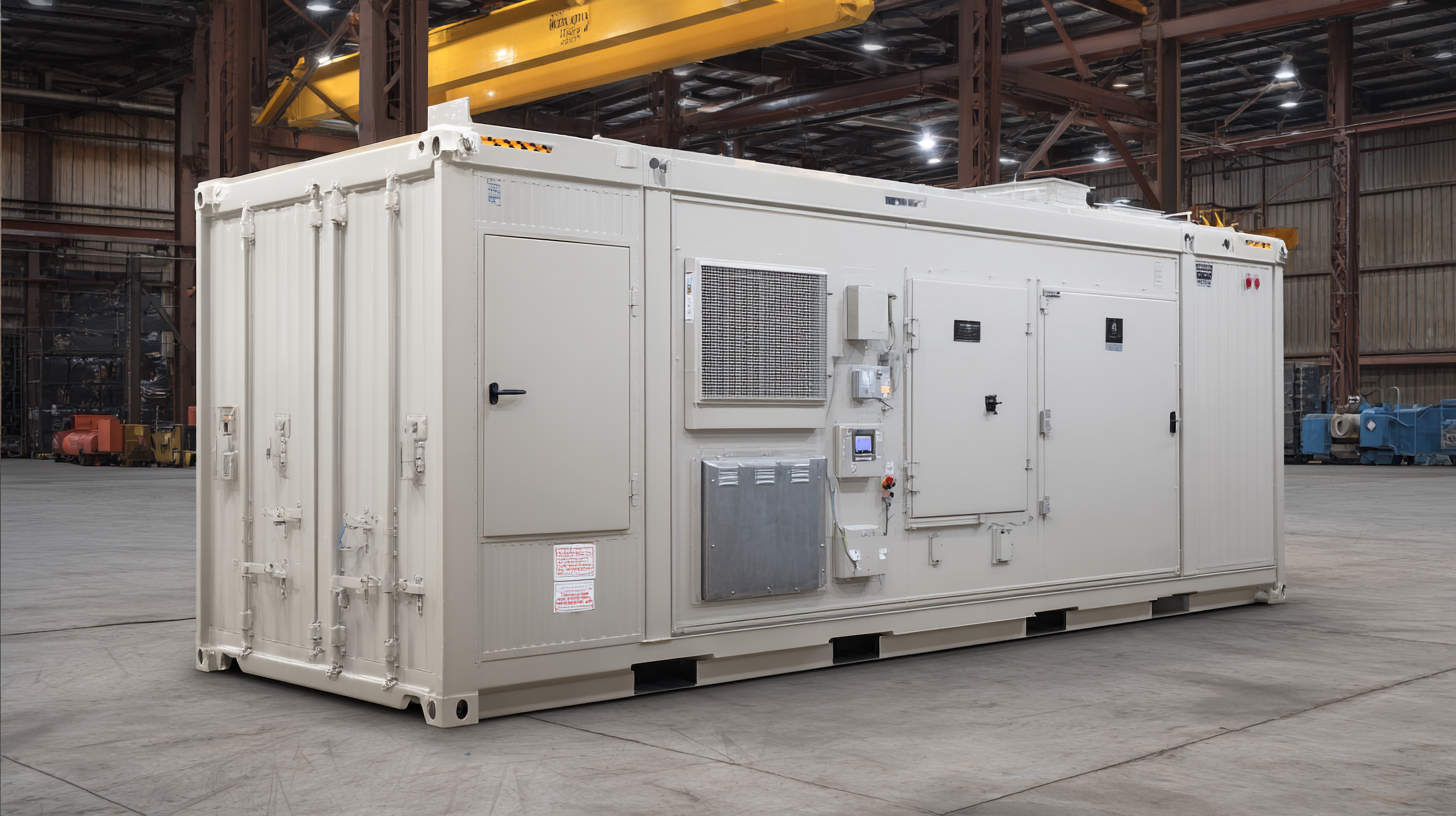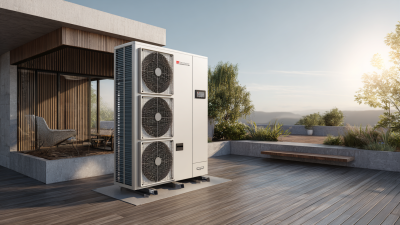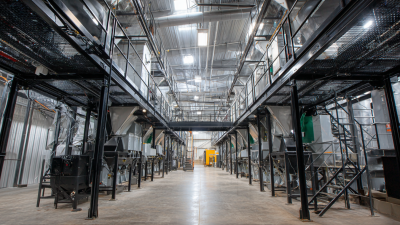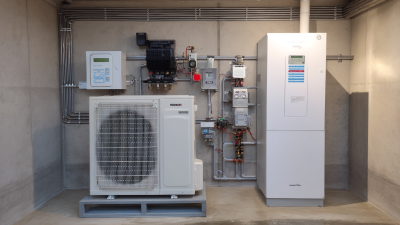Leave Your Message
The advancement of Compressed Air Heater technology is a pivotal aspect of enhancing industrial efficiency and sustainability. According to a recent report by MarketsandMarkets, the global compressed air treatment equipment market is projected to reach $12.5 billion by 2025, driven by the increasing demand for energy efficiency and operational cost reduction in various sectors. As industries seek innovative solutions to minimize energy consumption and improve system reliability, the role of sophisticated Compressed Air Heaters becomes increasingly critical. These heaters not only ensure optimal air temperature for various applications but also contribute to significant energy savings, reducing overall operational costs. As we explore the future of Compressed Air Heater technology, it is essential to examine the latest advancements and their potential impact on various industrial processes and energy consumption strategies.

The recent advancements in compressed air heater technology have been closely aligned with the global push towards enhanced energy efficiency and sustainability. With the increasing integration of renewable energy sources such as wind and solar into power grids, the demand for innovative systems that can efficiently manage and utilize compressed air energy is paramount. Notably, studies indicate that optimizing the design of compressed air heaters can lead to energy savings of up to 25% compared to traditional heating methods, significantly contributing to reduced operational costs.
Further innovations in this arena involve the adoption of advanced materials and smart control systems that enhance thermal performance while minimizing waste. For instance, the implementation of insulated heat exchangers within compressed air systems can yield an additional 15% efficiency gain by limiting heat loss. As industries adopt these cutting-edge technologies, the transformation towards a carbon-neutral future becomes increasingly feasible, showcasing a remarkable synergy between compressed air heating systems and sustainable energy goals.
Moreover, integrating these technological strides with holistic assessments of energy consumption promises far-reaching implications for energy management in both commercial and residential sectors. A comprehensive review of energy storage systems has echoed the importance of effective heat recovery methods, which not only support the efficiency of compressed air systems but also facilitate a smoother transition towards renewable energy usage, providing compelling data that validates the necessity and benefits of these innovations.
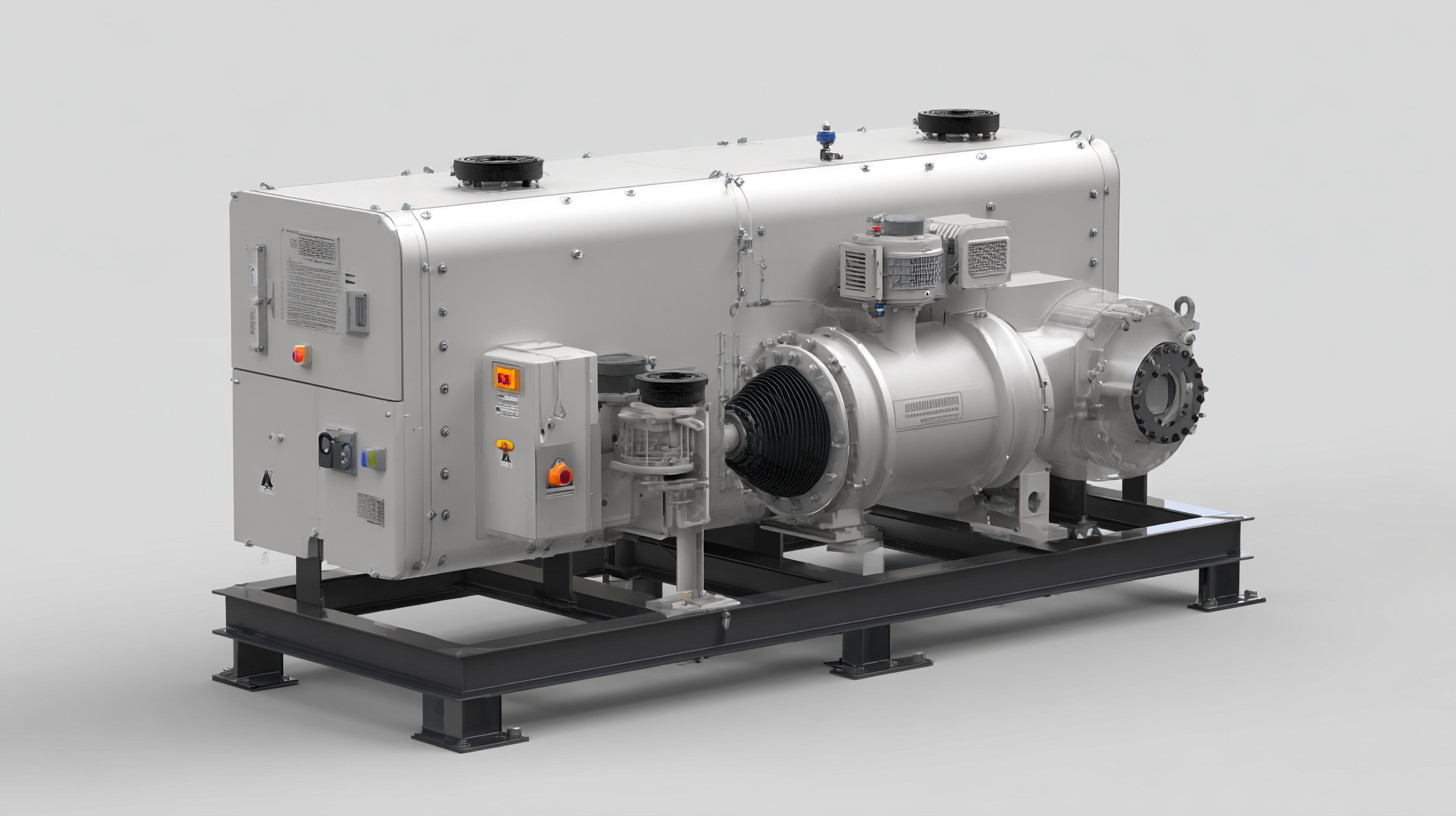
The integration of smart technology in compressed air heating systems is poised to revolutionize the industry, enhancing efficiency and performance while significantly reducing operational costs. According to a recent report by MarketsandMarkets, the global smart heating market is projected to reach $83 billion by 2025, reflecting a CAGR of 15.3%. This surge in interest is driven by a growing need for energy-efficient solutions and real-time monitoring capabilities that smart technology provides.
By leveraging the Internet of Things (IoT) and advanced analytics, modern compressed air heaters can optimize their operation based on real-time demand and energy availability. This not only maximizes energy savings but also extends the lifespan of equipment. For instance, implementing predictive maintenance can reduce downtime by up to 30%, as noted in a study by Deloitte Insights. Moreover, smart systems facilitate seamless integration with existing infrastructure, allowing companies to upgrade incrementally without significant upfront investment. The shift toward industry 4.0 is clearly reshaping the landscape of compressed air heating technology, enabling businesses to not only meet but exceed their efficiency goals.
As the demand for energy-efficient solutions continues to grow, the advancement of compressed air heater technology is gravitating towards sustainable practices. Manufacturers are increasingly focusing on developing systems that minimize energy consumption while maximizing performance. This evolution not only enhances operational efficiency but also significantly reduces the environmental footprint of heating solutions.
One effective approach to integrating sustainability into air heater technology is the utilization of renewable energy sources. By harnessing solar or wind energy, manufacturers can power their compressed air heaters, leading to reduced reliance on fossil fuels. Additionally, implementing energy recovery systems can further optimize efficiency, allowing facilities to capture and reuse waste heat for other processes.
**Tips:** When considering air heater solutions, evaluate the energy source to ensure it aligns with sustainability goals. Also, seek out innovations in heat recovery systems to improve overall efficiency. Regular maintenance and monitoring can identify inefficiencies, allowing you to make necessary adjustments and enhance the lifespan of your equipment.
| Technology Type | Energy Efficiency (%) | CO2 Emissions Reduction (%) | Application Field | Sustainability Feature |
|---|---|---|---|---|
| Induction Heating | 95 | 30 | Manufacturing | Fully recyclable materials |
| Heat Exchangers | 90 | 25 | HVAC Systems | Energy Recovery |
| Ceramic Heating Elements | 85 | 20 | Food Processing | Lower thermal mass |
| Infrared Heating | 92 | 28 | Textile Industry | Rapid heating |
Advancements in compressed air heater technology face several challenges that need addressing for optimal performance and integration into modern energy systems. Key issues include material limitations, inefficient heat transfer mechanisms, and the need for enhanced energy storage solutions to meet fluctuating energy demands. Emerging research in advanced materials and structural design, as highlighted in recent studies on flexible energy systems and pressure sensors, offers promising pathways to enhance compressed air heater designs. By adopting innovative materials and engineering approaches, we can improve the energy efficiency and reliability of these systems.
Tips for improving compressed air heater designs include focusing on sustainable material choices and integrating machine learning algorithms to optimize their operation. Leveraging data from hybrid renewable energy systems can inform design processes that are more responsive to real-time energy needs. Additionally, addressing the thermal energy storage challenges, such as bridging the gap between heat production and consumption, will be essential in creating a more efficient and adaptable compressed air heating system. By combining these strategies, the future of compressed air heating technology can align more closely with the evolving demands of a decarbonized energy landscape.
As industries evolve, compressed air heating technologies face significant shifts due to regulatory changes aimed at energy efficiency and climate change mitigation. These regulations are increasingly focused on reducing greenhouse gas emissions and promoting sustainable practices, pushing companies to adopt better technologies. The integration of energy storage systems with compressed air heating presents a significant opportunity to enhance performance and reduce environmental impact.
Tip: Consider conducting regular audits of your compressed air systems to ensure compliance with new regulations. Identifying inefficiencies early can help avoid potential penalties and enhance operational efficiency.
Moreover, advancements in thermal management techniques for compressed air energy systems can lead to greater cooling potential in hot climates. By optimizing the expansion phase of these systems for air conditioning use, businesses can significantly cut their energy consumption while adhering to updated ecodesign standards.
Tip: Stay informed about ongoing changes in energy regulations and technologies to adjust your systems accordingly. Being proactive can lead to not only compliance but also considerable cost savings.
